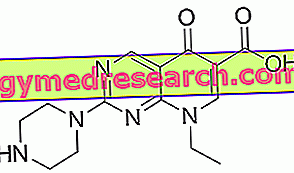In children, an anticipation of adiposity rebound is considered an early indicator of the risk of developing obesity in adolescence and adulthood.
Adiposity rebound, literally means rebound of adiposity. This term indicates the physiological process of inversion of the adiposity curve, which normally begins around 6 years of life.
In the newborn first, and then in the infant, a gradual increase in BMI values is observed, which continues until the age of age. Starting from early childhood, then from 12 months of life onwards, BMI values decrease, to then stabilize and resume increasing, on average, at the age of 5-6 years.
Adiposity rebound is defined as the point of the curve - quantified by a specific age - in which the minimum value of adiposity is reached before the physiological increase of BMI.

An increase in BMI values before the age of 5 is considered an early rebound adiposity.
In some studies, a diet rich in protein in the first 2 years of life has proven to be a risk factor for early rebound adiposity. On the other hand, the caloric amount and the lipid intake do not seem to have a negative influence in this sense. The same authors hypothesize that the protein excess causes a stimulus to the secretion of IGF-1, a powerful anabolic hormone that stimulates cell proliferation, with consequent acceleration of growth, increase in muscle mass and hypertrophy-differentiation of preadipocytes in adipocytes ( hyperplasia of adipose tissue). Another hypothesis suggests that a reduced lipid intake in this age group makes the organism metabolically unprepared to manage the high fat intake in future years, with greater predisposition to lipid accumulation. Based on these considerations it is not advisable to reduce the fat intake in the first years of life, also due to the fact that breast milk has a low protein concentration and a high lipid concentration. A general advice could therefore be to leave the child a certain freedom in food choices, trying - if possible - to protect him from the early encounter with fries, sugary drinks (never before sleeping; be careful also of some fruit juices) and foods excessively sweet or salty. Otherwise a flattening of taste is likely, with a marked preference for "junk foods".
Other studies have pointed the finger at the contribution of cow's milk, but to date no environmental factors have yet been identified that can certainly influence the age of adiposity rebound.
Breastfeeding is one of the protective factors against obesity in adolescence and adulthood; obviously, even physical activity - which in this period of life will be structured exclusively in the form of play and spontaneous motor experiences - plays an important role in the prevention of obesity. Attention, on the other hand, to excessive weight gains during pregnancy and smoking, even passive ones, in pregnant women.



